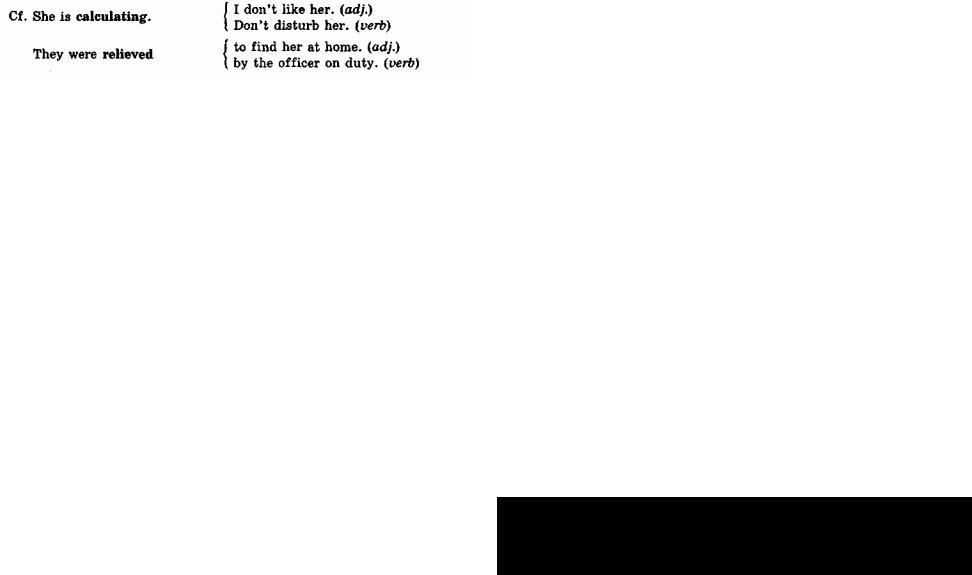
гордон Крылова Граммматика
.pdf
Similarly, the verbal force is explicit for the participle when a by-phrase is present.

342 _______________________________________________________ Adjectives |
e.g. Unhappy, the girl returned to work. |
e.g. Anyone intelligent can do it.
I'll tell you something wonderful.
2)in some set phrases, e.g. the president elect (=soon to take office), the examination board proper (=as strictly defined), court martial, attorney general, heir apparent, and the like.
3)if an attribute is expressed by the adjectives absent, present, concerned and involved,
e.g. The men present were all his friends.
The people involved were asked to come at ten o'clock. Post-position is possible if an attribute has a modifier following it.
e.g. Peter and Tom were the boys easiest to teach. Or: Peter and Tom were the easiest boys to teach.
They have a garden larger than yours.
Or: They have a larger garden than yours.
If there are several attributes modifying a noun their order within the attributive group is best shown in the following table:
e.g. a brilliant (1) young (4) man a small (2) round (3) table a dirty (1) old (4) brown (5) coat a charming (1) French (6) writing (8) desk a large (2) green (5) Chinese (6) carpet a famous (1) German (6) medical (8) school a large (2) iron (7) box a big (2) square (3) old
(4) chest a tall (2) young (4) London (6) policeman
An attributive group in which all the spaces were filled would be rare and cumbersome. Adjectives used as loose attributes are mobile in the sentence (for this see also § 7).
Adjectives _______________________________________________________ 343
Nick, surprised, went over to the window to re-read the letter. Mother stood up from the table, curious and anxious.
§ 10. Note the place of the indefinite article when an adjective happens to be modified by too, so, as and however.
e.g. She is too timid a girl to meet him.
Dr Grogan was, in fact, as wise an old man as my grandfather. For this see also "Articles", § 65.
*
